BRIAN C. GUNIA
Includes bibliographical references and index.
ISBN 978-1-4875-0096-2 (hardcover)
1. Barter. 2. Negotiation Economic aspects. I. Title.
University of Toronto Press acknowledges the financial assistance to its publishing program of the Canada Council for the Arts and the Ontario Arts Council, an agency of the Government of Ontario.
I dedicate this book to my two daughters, Vivian and Bridget. May the bartering mindset help you find opportunities in the conflicts and challenges that life inevitably presents.
ACKNOWLEDGMENTS
This book is the by-product of an extended and extensive collaboration, often with people who were no more aware of a book collaboration than I was. In other words, its ideas originate in countless and often casual interactions spread across my academic career, many that predated the book and others that at least ostensibly had nothing to do with it. Accordingly, any credit for the books strengths should be dispersed broadly much more broadly, even, than the people mentioned below. (Any blame for its errors, in turn, should be directed squarely at me.)
In particular, I would like to acknowledge and thank my three doctoral advisors at the Kellogg School of Management Keith Murnighan, Jeanne Brett, and Adam Galinsky. You collectively taught me to think big without losing focus. Many of the ideas in this book are yours as much as mine.
In addition, I would like to thank my many negotiation students over the years, at both Northwestern University and Johns Hopkins University. It was your reflections on countless negotiation simulations along with my own difficulty in intelligibly explaining integrative negotiation to you that ultimately led me to the bartering mindset.
Much credit is due to my collaborators on negotiation research projects you know who you are! Each of you has pushed me to broaden and deepen my own thinking about negotiation, without which I could not have completed this project (or many others). Thank you.
In addition, several people were kind enough to talk through the books specific ideas with me. Your questions, comments, and quizzical looks all found a way into the book. A special thanks to Jeff Gish, David Loschelder, and Roman Trtschel.
Several others were kind enough to read through the whole book and offer their detailed comments and suggestions. These include three anonymous reviewers, Jeanne Brett, Mona Mensmann, Amy Pei, and Tom Allen. Each of you, in your own way, has dramatically improved the work. Reading through it, I hope you can spot your fingerprints!
A big and sincere thanks to University of Toronto Press and especially Jennifer DiDomenico, who saw early promise in the work and shepherded this first-time book author through a thicket of considerations and decisions. Thank you for your consistent support and consistently helpful feedback.
Last but certainly not least, Id like to thank my immediate family: Betsy, Vivian, and Bridget; Mom, Dad, Amy, and Abby. Though we talk about negotiations less often than the others mentioned above, weve negotiated no less often typically to everyones benefit. More importantly, your constant and unwavering support have been a consistent source of inspiration and strength. Thank you.
THE BARTERING MINDSET
A Mostly Forgotten Framework for Mastering Your Next Negotiation
THE LIMITS OF THE MONETARY MINDSET
On 9 April 2017, shortly before the departure of United Flight 3411, passenger David Dao was forcibly dragged from his seat, up the aisle, and off the flight by airport authorities kicking, screaming, and bloodied. Other passengers captured the soon-to-be viral video on their phones, imploring the authorities to stop their seemingly brutal treatment. As the world watched, the backstory slowly emerged.
United had determined, after fully boarding the flight, that they needed to put four crew members into passengers seats. They offered passengers monetary incentives to take a later flight, and three accepted the offer. But the airline needed a fourth. In the absence of any takers, they randomly selected Dao, a doctor trying to return home. Learning of his selection, Dao became increasingly agitated, mentioning his ailing patients and refusing to leave the flight. From there, the situation escalated and culminated in his forcible removal and subsequent hospitalization.
In the wake of these events, Uniteds troubles only multiplied. The viral video sparked worldwide outrage and condemnation on social media, especially on the Chinese website Weibo, where it attracted 210 million views within two days (a major problem, considering the airlines strategic focus on Asia). Incensed passengers around the world called for a boycott, and the companys stock initially took a $1 billion hit. Uniteds CEO seemed to make matters worse, first by saying they had re-accommodated Dao and then by blaming the passenger for his belligerence even while praising the companys measured response.
The focal issue in this story was the disputed seat, not the monetary incentives offered to passengers. Nevertheless, the story embodies what this book will call the monetary mindset: an I-win-you-lose way of looking at the world that originates, at least in part, in our daily monetary transactions. Uniteds stance embodied the monetary mindset in that its decision-makers saw themselves as occupying one side of an adversarial relationship with one other party, Dao, who wanted the opposite of what they wanted. Thus United saw no alternative to a show of force or a forced compromise on the monetary incentives. Uniteds behavior and the worlds reaction reveal the monetary mindsets shortcomings. This book will describe a mindset that can serve everyone better, helping us solve our own problems and meet our own needs much more effectively: the bartering mindset. By the end of the book, you should be able to devise a solution to the seat dispute that does not involve anyones forcible removal.
But first, lets consider the mindset we already have: Think about a typical weekday, and count the number of times you at least implicitly use money. How many monetary transactions do you engage in, be they with cash, credit, or check? Maybe you buy gas in the morning, lunch at work, or an on-demand movie at home. Maybe somebody else pays you a salary or some other form of income. And even if you dont engage in any explicit monetary transactions, isnt money all around you in the ads on the web, the bills in your mailbox, and the back of your mind when your kids leave the lights on? Whether we know it or consciously consider it, money is all around us. For most of us, monetary transactions are ubiquitous.

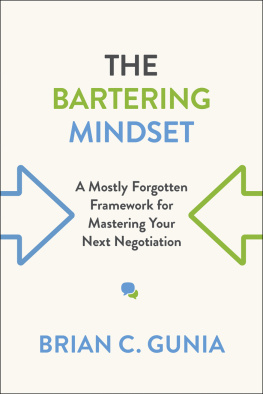
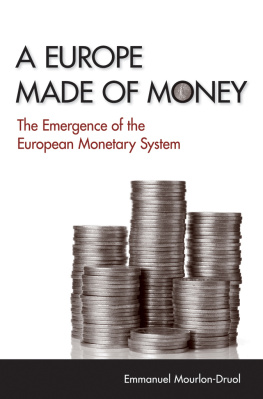
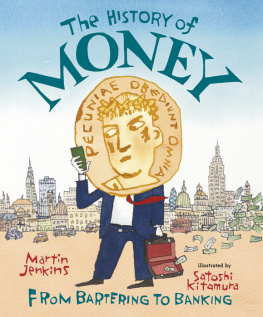

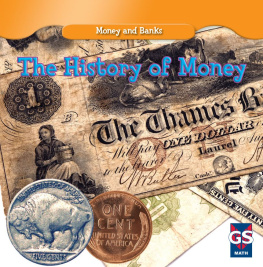



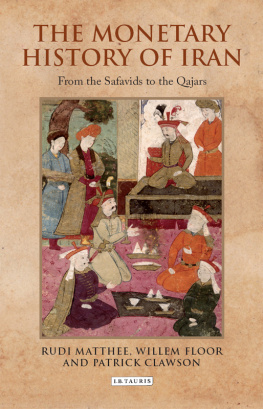
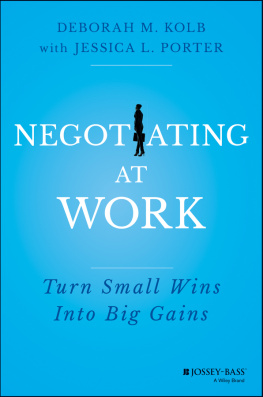
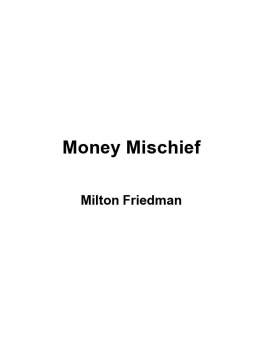

 Printed on acid-free, 100% post-consumer recycled paper with vegetable-based inks.
Printed on acid-free, 100% post-consumer recycled paper with vegetable-based inks.